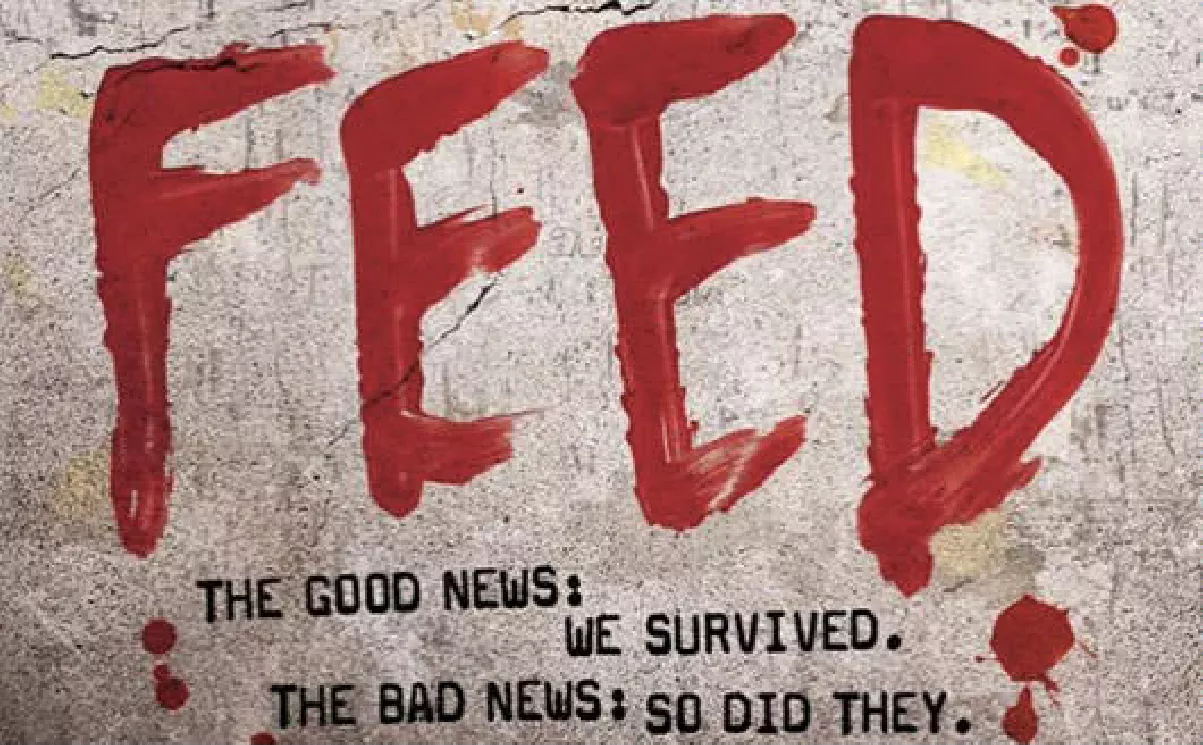At the time of the publication (2010), Mira Grant’s Feed was largely considered innovative as it refused to use many common tropes typically observed in zombie novels, and that it delivered fresh, fun perspectives on a usually grim subject. It was a runner-up of the 2011 Hugo Award for Best Novel and nominated for a few others such as the Philip K. Dick Award, Audie Award for Science Fiction, and Shirley Jackson Award for Novel.

Even until today, the consensus maintains that Feed is just as unique as it once was, despite having been in circulation for more than a decade.
World-Building
One of the major points of high praise is the world-building aspect, in the sense that Feed offers a detailed narrative with an instantly clear and thrilling delivery. The novel is thorough without getting too technical about the virus, the government response, the long-term impact on society, and risk mitigation efforts by the public at large. Thanks to the practical thoroughness, the story comes with good credibility and is an easy read overall.
Events in “Feed” by Mira Grant are set about 20 years following an incident known as The Rising, where a man-made zombie virus went airborne and infected every single person in the United States. But not everyone turned into a zombie; the virus would lie dormant at first until it got triggered by one of several very specific conditions before the virus began the amplification process and transformed an otherwise normal person into a mindless killer with insatiable hunger for human flesh. Among those triggers included death, in which case the virus would take over and reanimate the corpse, and direct contact with an already zombified specimen where a live host was bitten. While cases of spontaneous zombification were not impossible, they were rare at best.
The zombie outbreak was bad, but not so bleak that you could call it an apocalypse. Many people survived back then, and the society today still pretty much works as a modern civilization with electricity, plumbing, and the Internet. Apart from the constant blood testing to keep the “zombification” under control in an all-infected population, everything else remains mostly unchanged. You still have a functioning government; in fact, the narrative is set during the height of a presidential campaign in the country.
Learning their lessons from the less-than-credible conventional media during the outbreak, people have now turned to blogs for their daily dose of news. Some bloggers are by-the-book news journalists, including Georgia, our main protagonist here. There are also bloggers who focus on giving opinions – but still based on facts – like her brother Shaun, while others such as their friend, Buffy, focus on personal and fictional stories. All three have been selected as the official correspondents for a senator’s presidential campaign trip. In between the mostly uneventful days of the campaign, they encounter some zombie attacks that lead to an investigation of a larger conspiracy involving the presidential candidates.
Getting accepted for the positions means a sudden exponential growth of the brother-sister news site, After The End Times, and a big chance to be a major name in the industry. Considering the country is in a perpetual state of zombie infection, however, their lives could also be in danger.
Characterization
As for the characters, you can almost say that the cast in Feed is somewhat predictable. Let’s not forget that except for the flashback to the initial zombie outbreak, the entire storyline happens during a presidential campaign trip, so expecting a smooth character development is a bit of a stretch here. That being said, it doesn’t mean there isn’t any, either.
For example, it’s good that the novel gives a bit of a background story to Georgia and Shaun, who grew up as orphans in the aftermath of the zombie uprising. Both of them were adopted by the Masons and since then have been living their lives chasing big stories like real investigative journalists. It might not be entirely clear how they’ve become so proficient at what they do, but in the end they’re selected as members of the news team that follows presidential candidate Senator Peter Ryman on his bid for the highest office. They’ve encountered zombie attacks throughout the campaign trail, putting his life and everyone else’s around him at risk.
That a presidential campaign selects bloggers – out of so many TV reporters or reputable journalists – to be part of the press corp might be borderline ridiculous, but at least it doesn’t come out as improbable given the traditional media’s reluctance on reporting any zombie-related news in the past. Georgia, the by-the-book blogger who narrates much of the story in Feed, doesn’t believe that the attacks on the campaign are mere coincidences and will stop at nothing to get to the bottom of the mystery.
We think Mira Grant’s Feed is a praiseworthy take on the zombie narrative with detailed world-building and well-structured plot points, alternating from joyful adventures and tensions as the characters fight against zombies and check their blog traffic. The novel might present itself as some sort of political thriller, but we prefer seeing it simply as a satire of journalism and zombie tropes. It is essentially a fun zombie book that never for once tries to take itself too seriously. The result is a unique and enjoyable read, but never corny.
If the zombie virus is man made, don’t you think we can also develop a cure? Do you think there is an element of utopia in the story? We’d love to hear from you.
Other Things You Might Want to Know
What is the nature of the relationship between Georgia and Shaun?
Admittedly, the lack of clear explanation about the relationship between Georgia and Shaun makes for one of the most unsettling elements of the story. They came from different families, but then they were adopted by the Masons and raised as brother and sister. Georgia and Shaun are not biological siblings, but they’re probably too close to each other for readers’ comfort. Sometimes, when they’re on the road, they even share a bed by choice.
Comic books by Mira Grant:
Spider-Gwen: Ghost-Spider (ongoing series)
- X-Men Black: Mystique (2018)
- Age of X-Man: The Amazing Nightcrawler (2019)
- Ghost-Spider (ongoing series)
- King In Black: Gwenom vs. Carnage (2021)
- Magic: Soul and Stone (2023)
Popular story collections by Mira Grant:
When Will You Rise: Stories to End the World (2012)
- Letters to the Pumpkin King (2014)
- Laughter at the Academy (2019)
- Apocalypse Scenarios: These are the Ways the World Ends (2022)
- The Proper Thing and Other Stories (2024)
Check out other articles by month:







